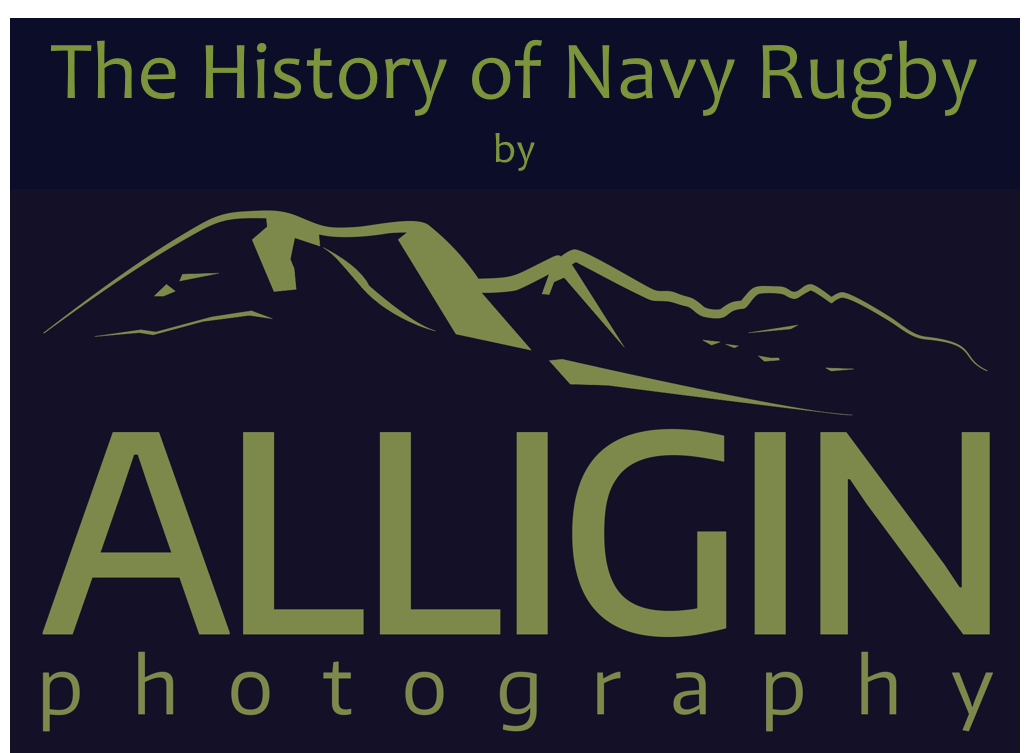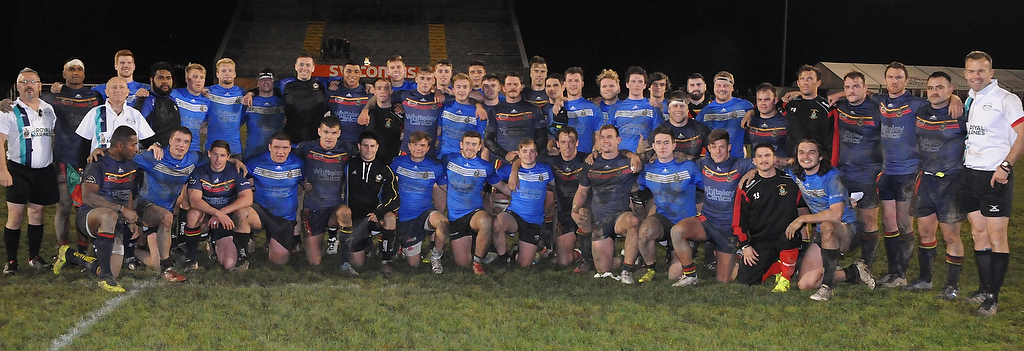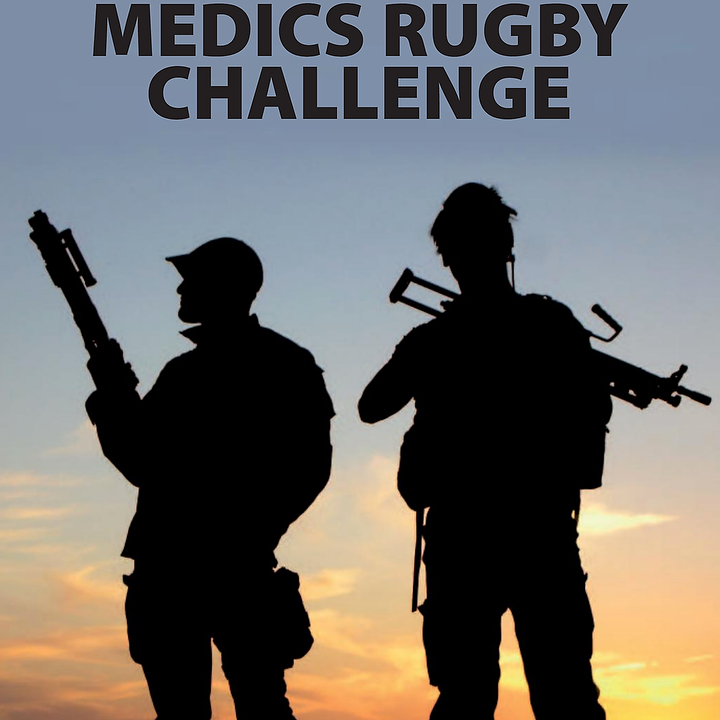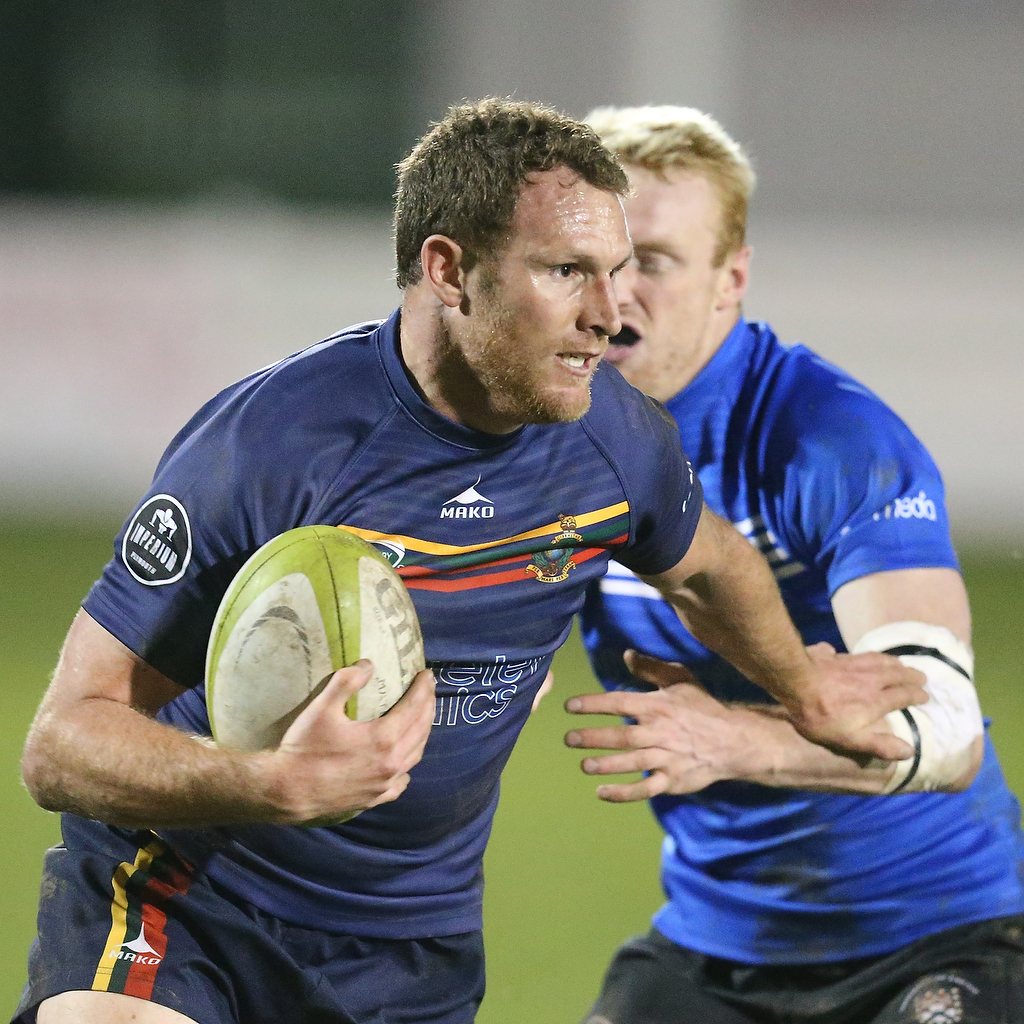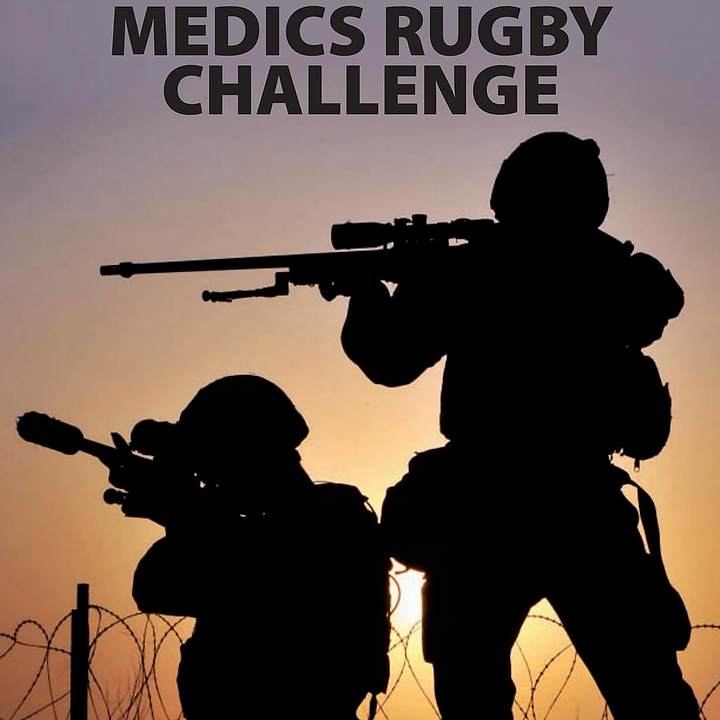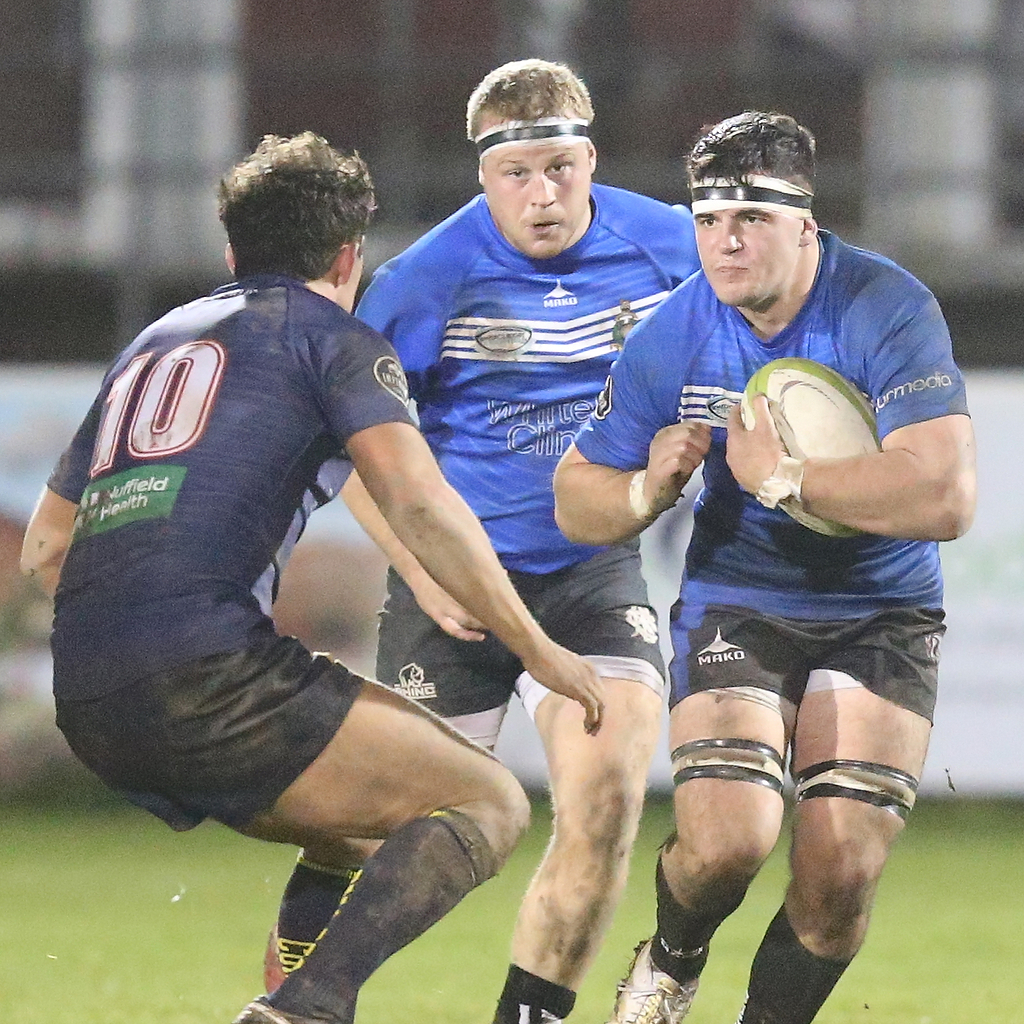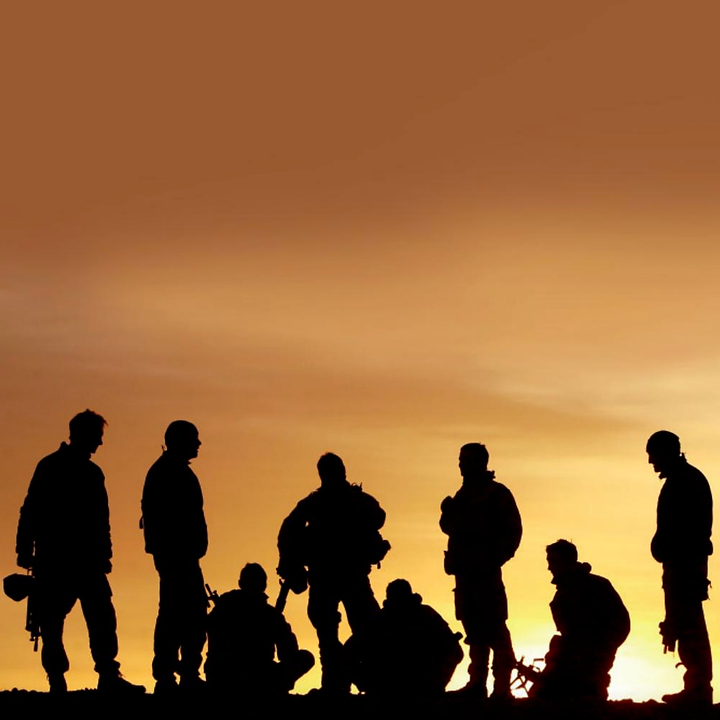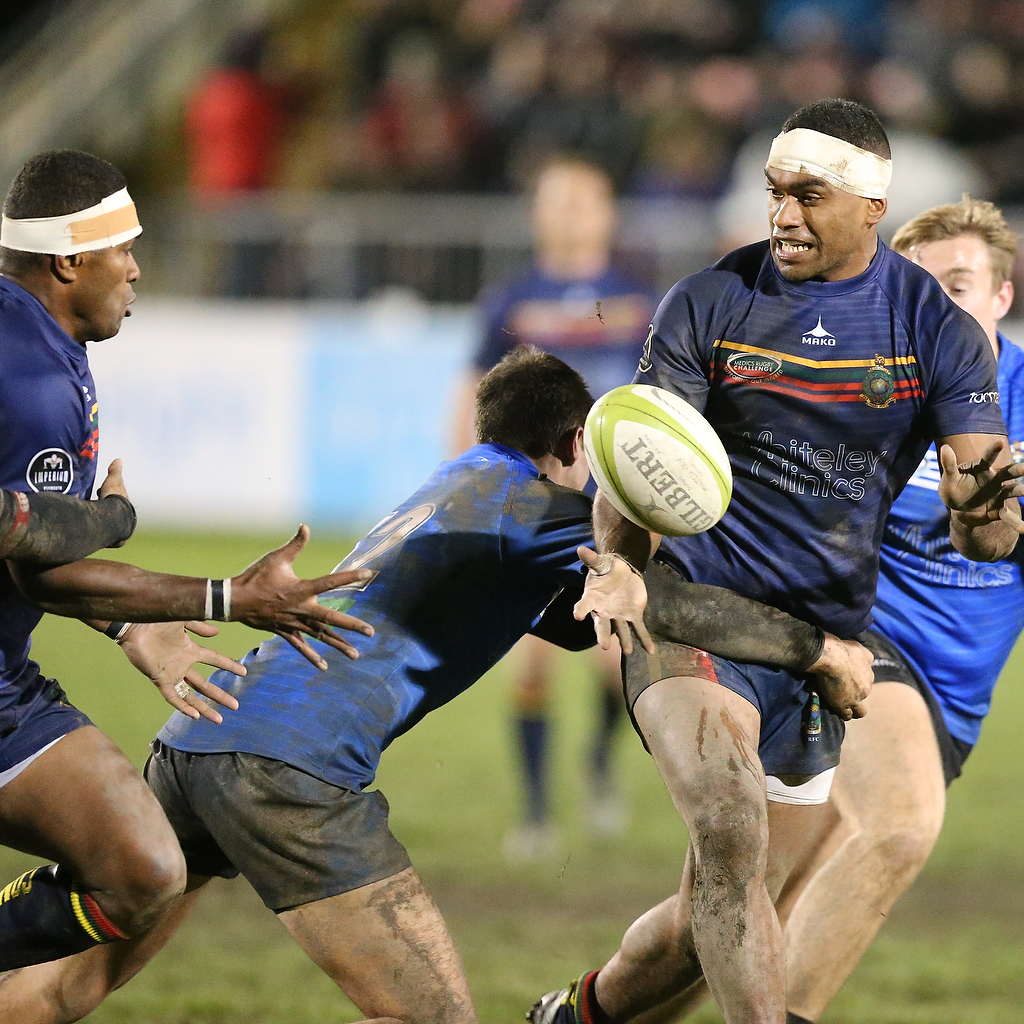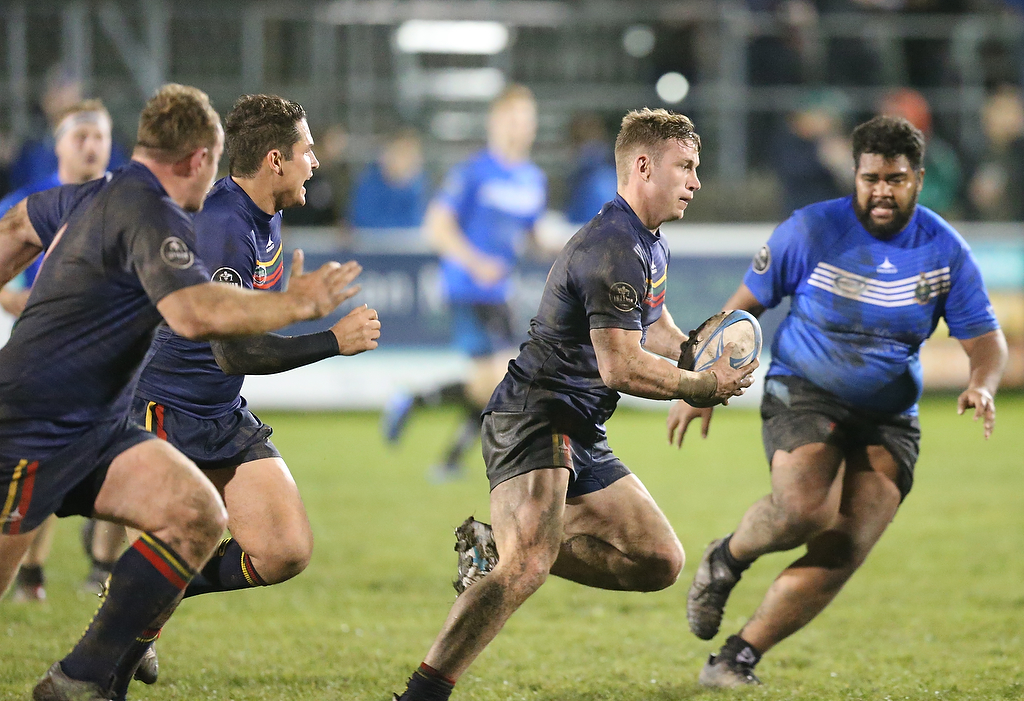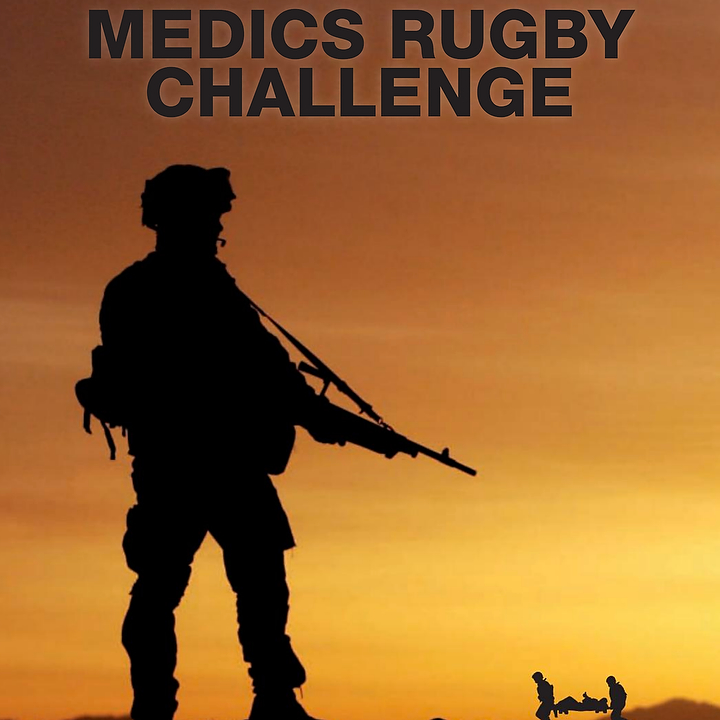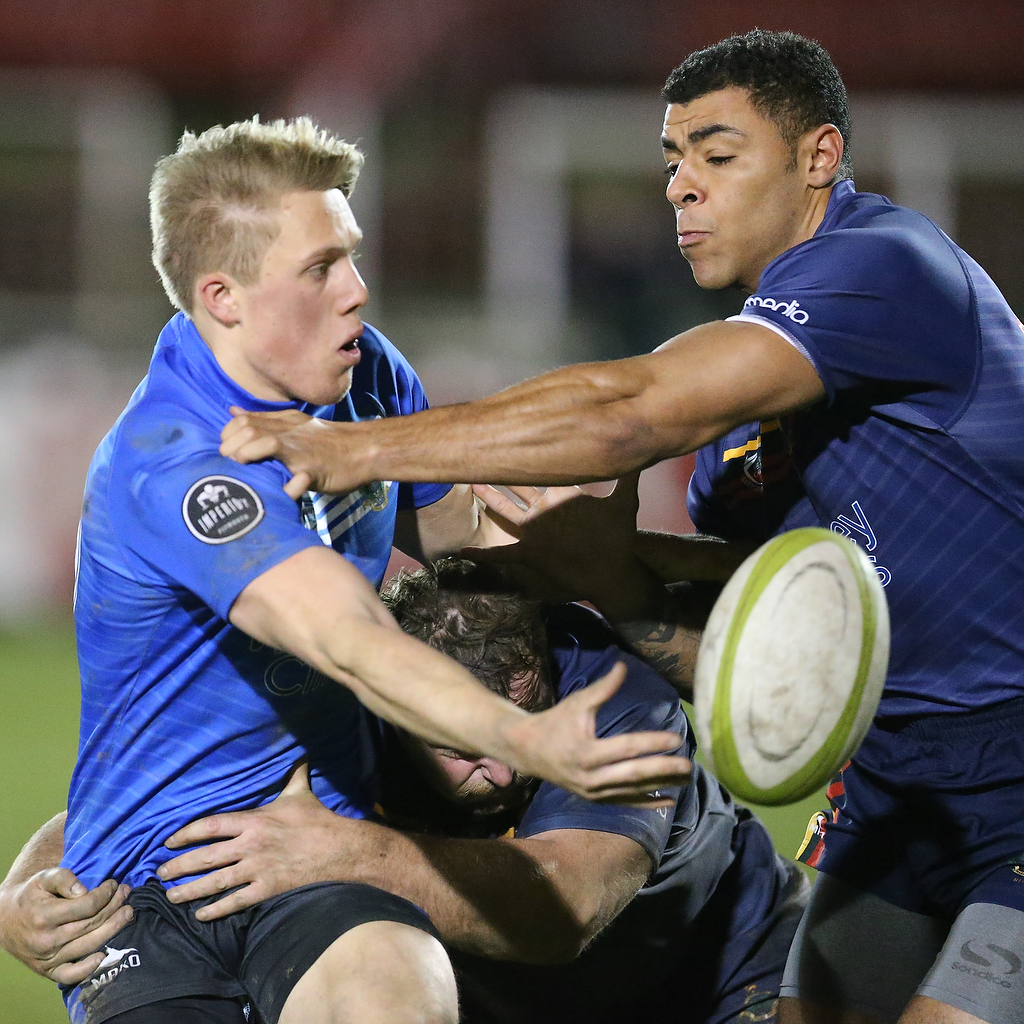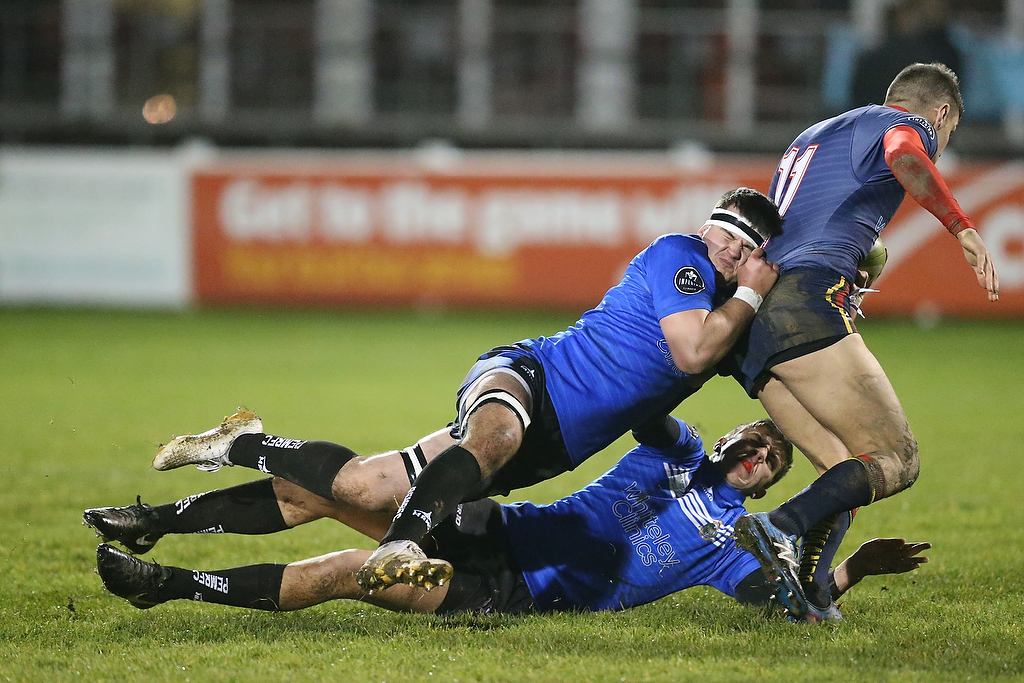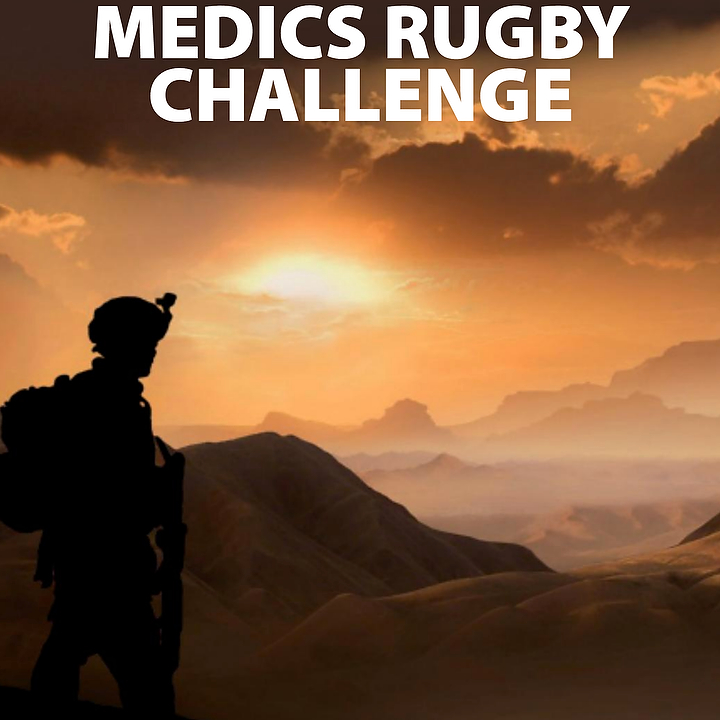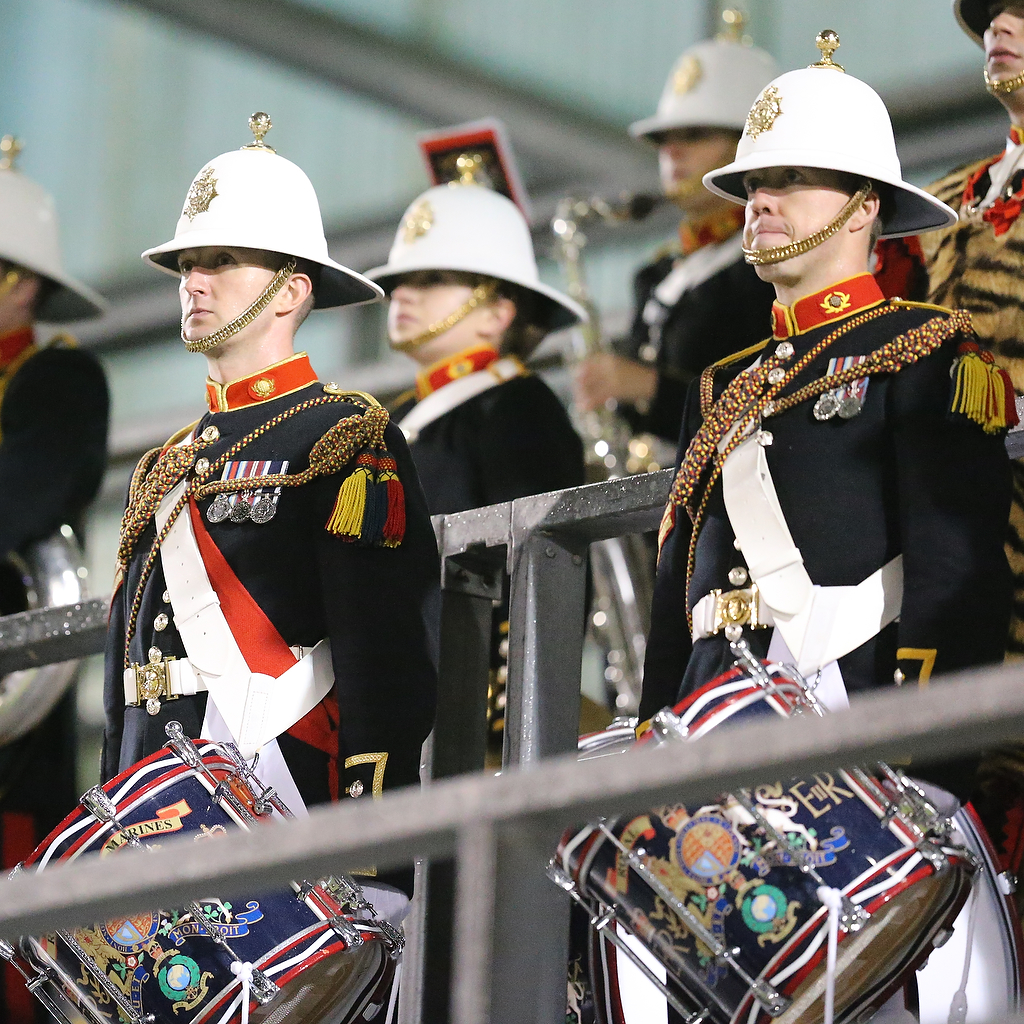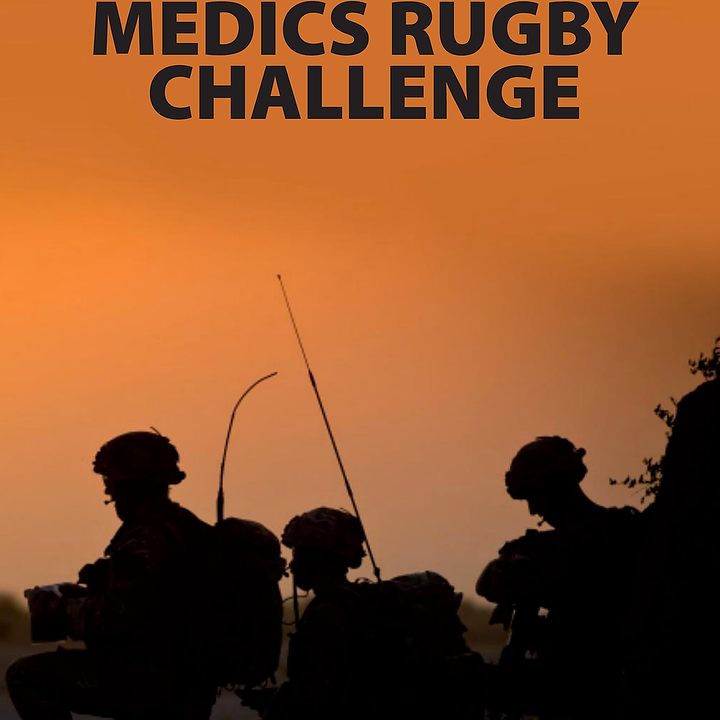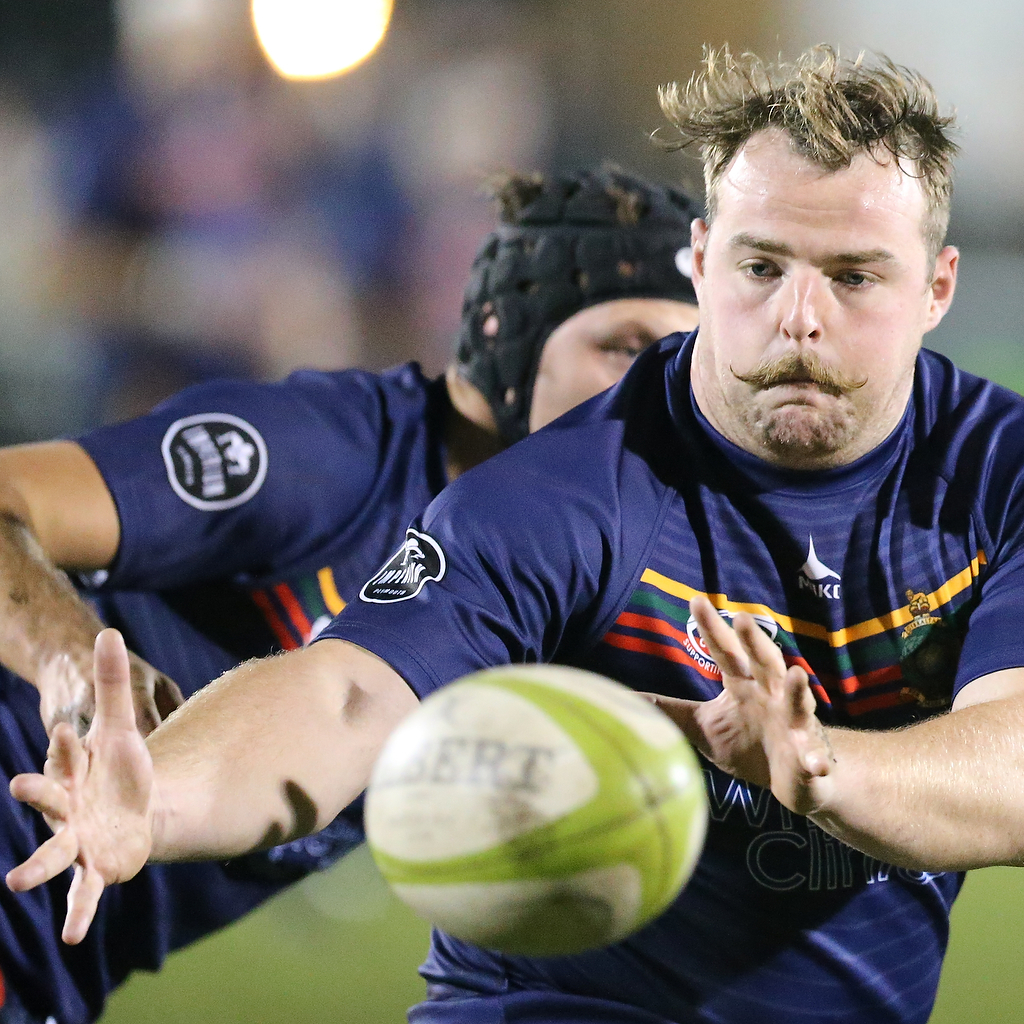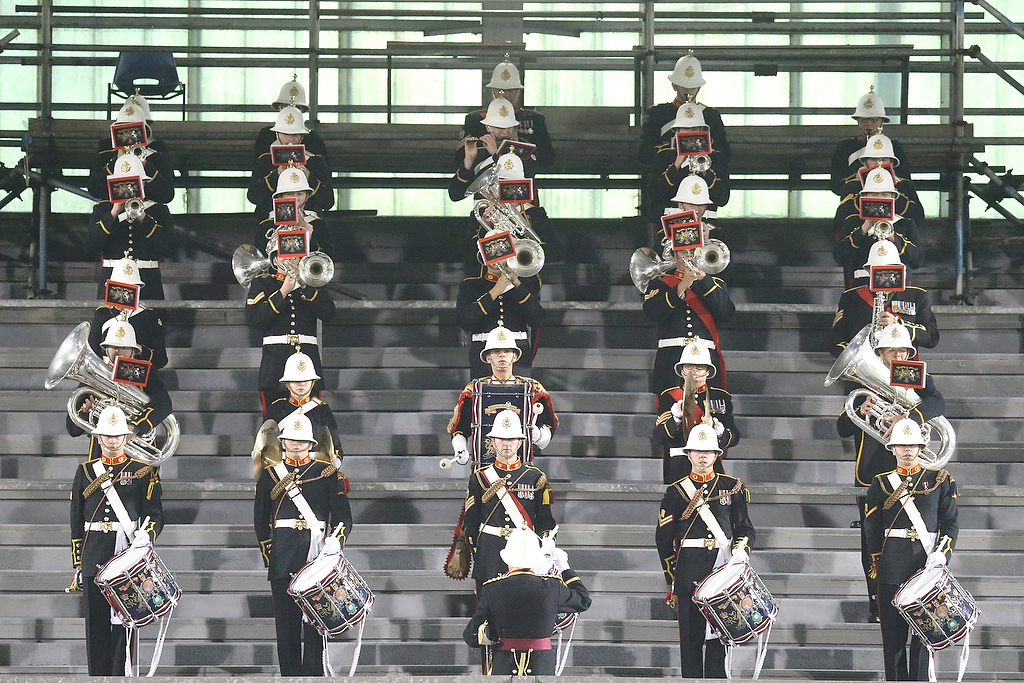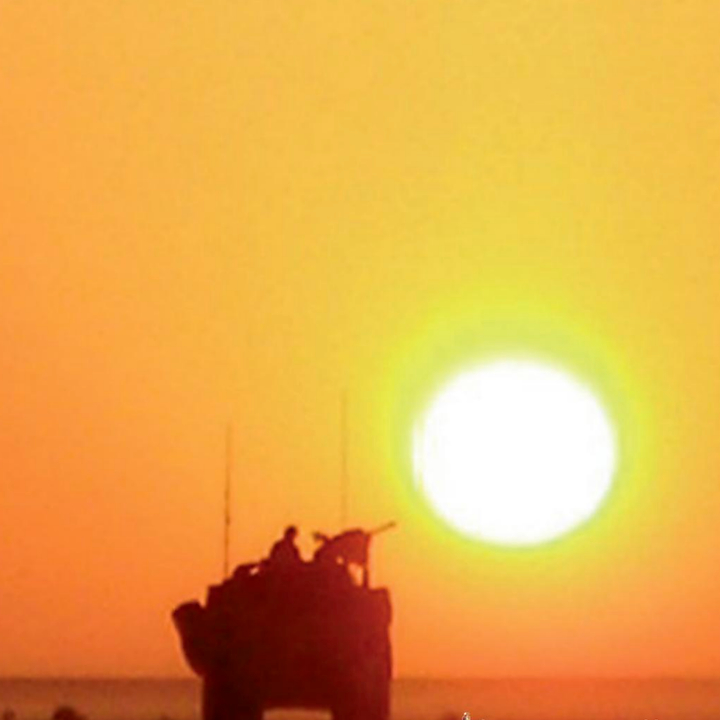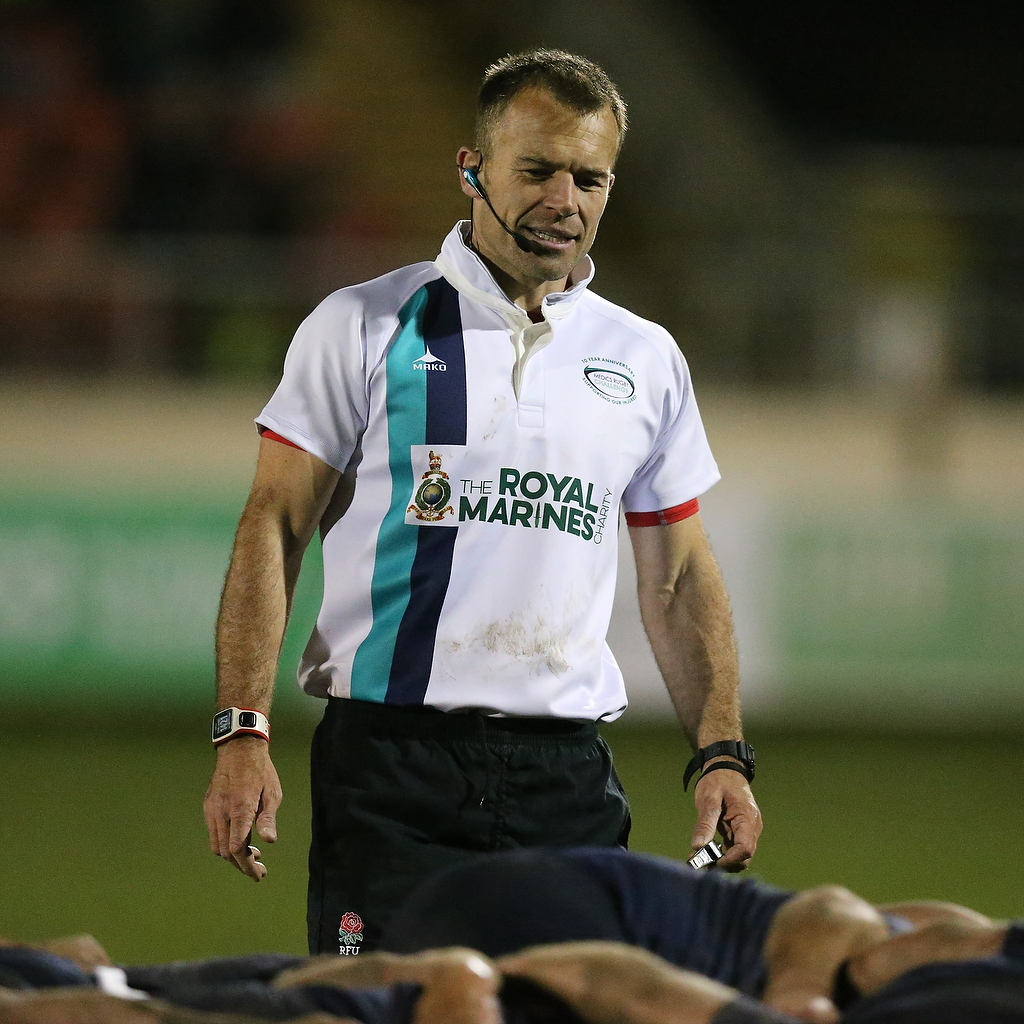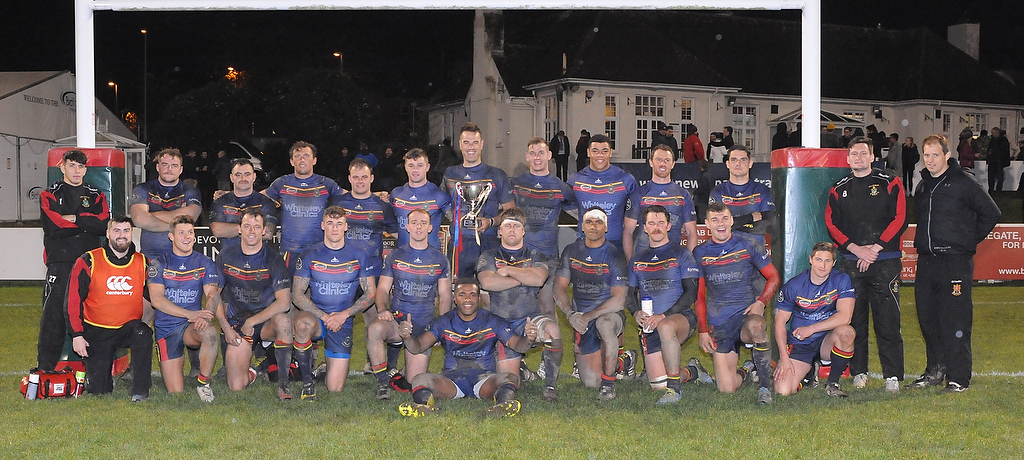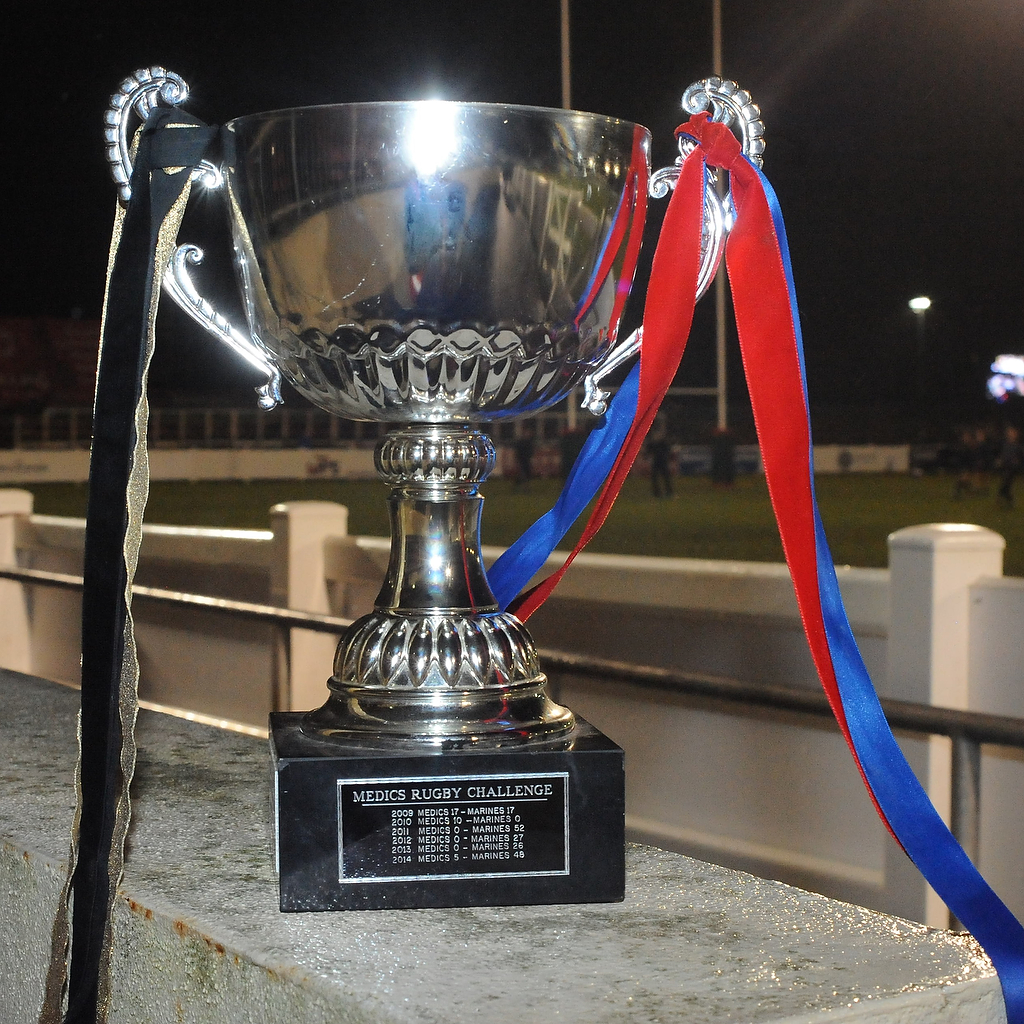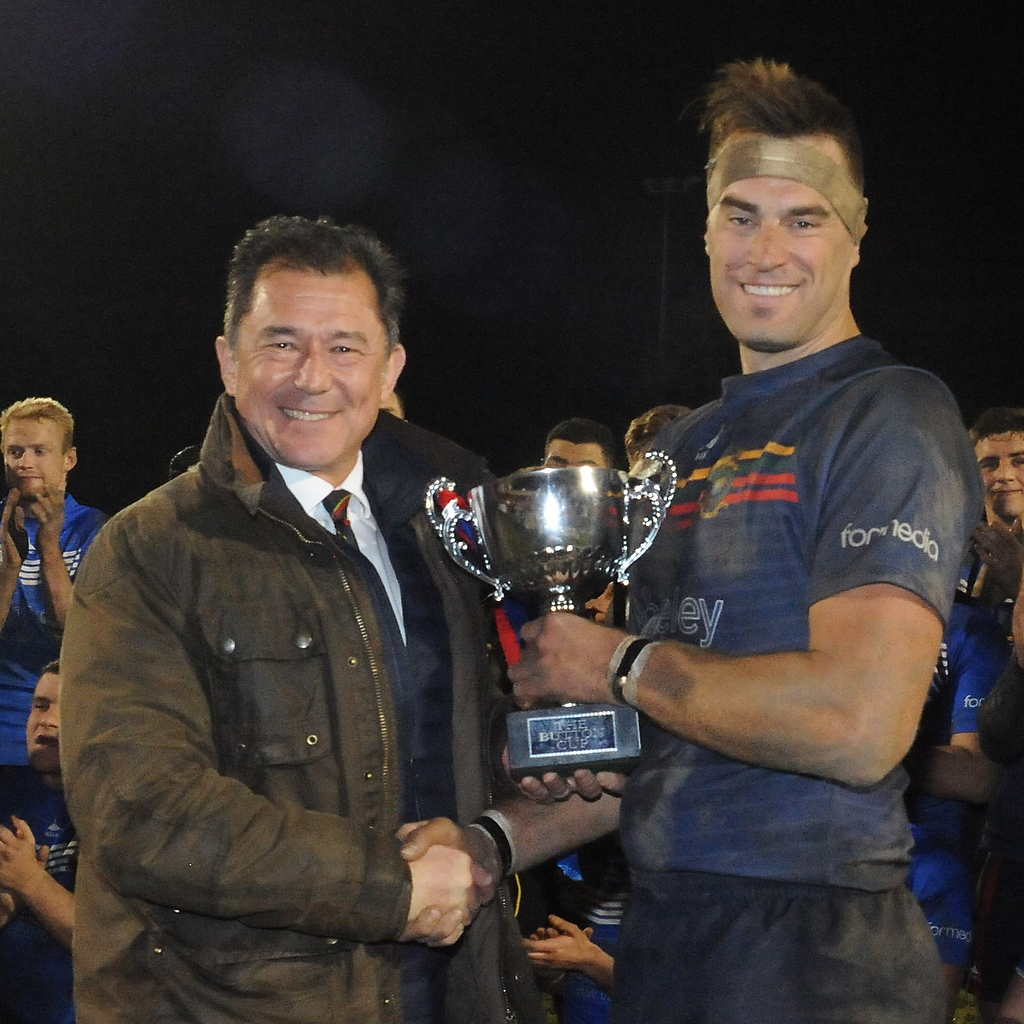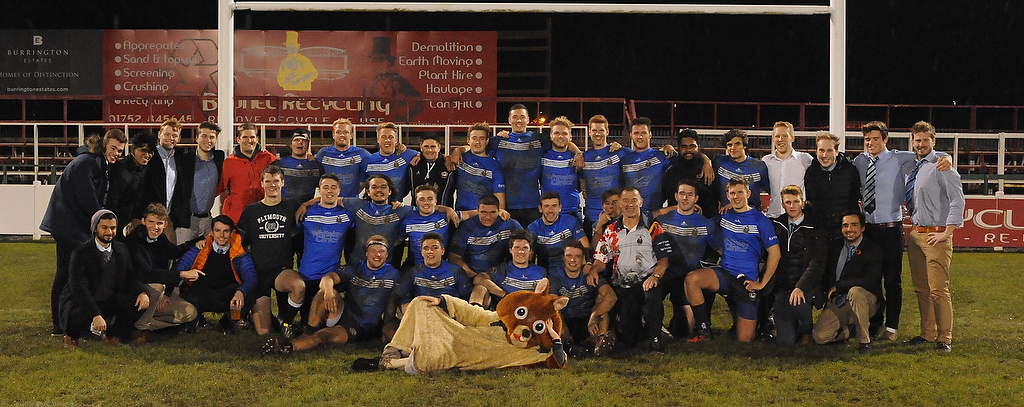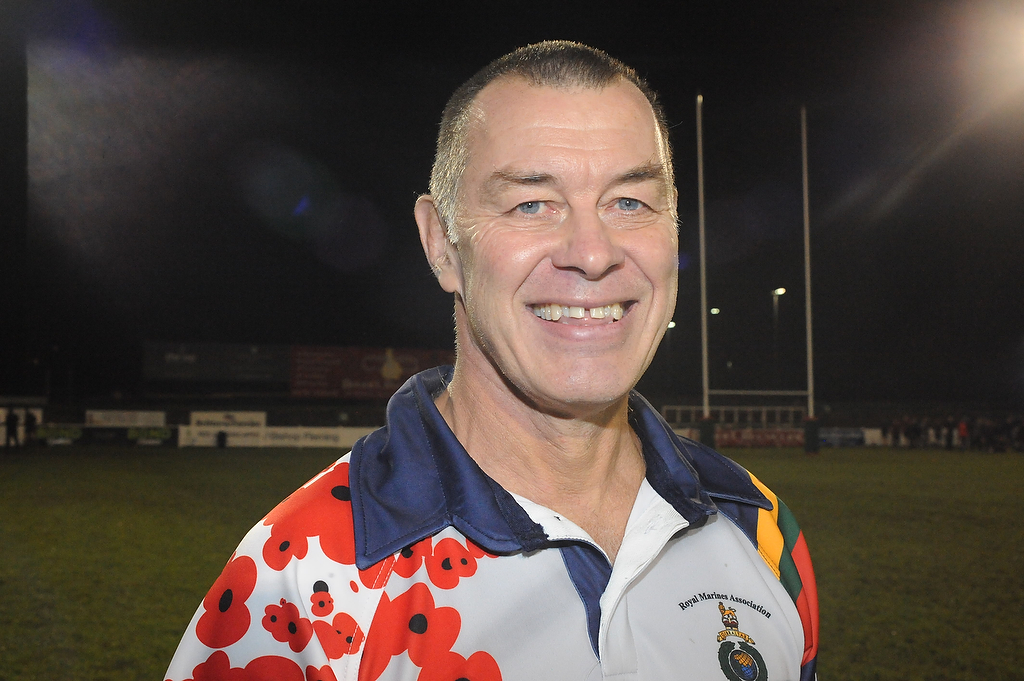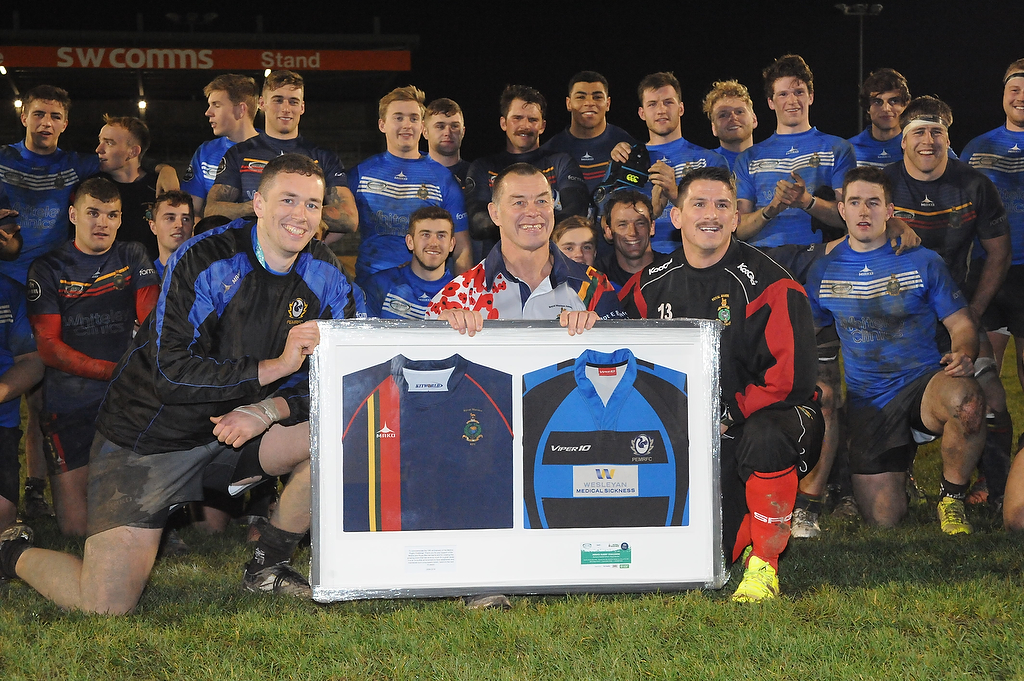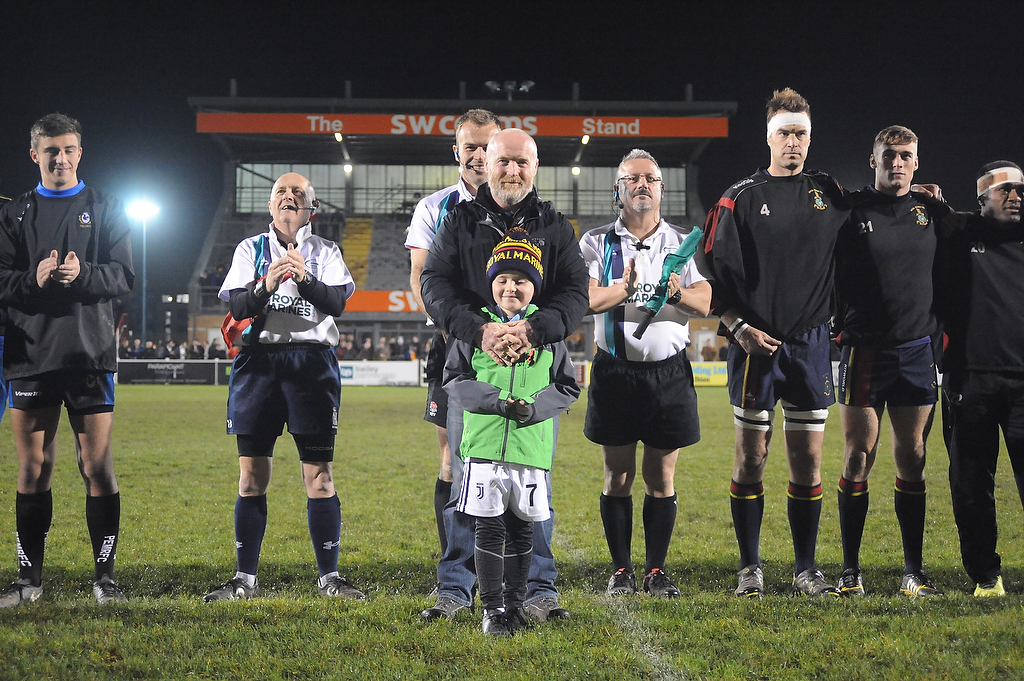10 Years of the Medical Rugby Challenge
On the 3rd November 2009 the first Medics Rugby Challenge was played. It was born from the conflict in Afghanistan and this year will have broken £200,000 raised for charity to support those who returned but carry the often forgotten, and sometimes invisible, legacy of war - trauma.
The support needed is an enduring one that far outlives the time of conflict. The support is resource intensive and complex in its delivery. But without it so many of the stories of accomplishment, born of adversary, would not have been able to have been achieved.
The constant drive behind the event has, by common consent, been through the efforts of one person. Though he will no doubt deflect the praise to a team effort it has been Tony Lambert's selfness and determination that has caused the match to grow from humble beginnings to a charity event that is based upon community in the truest sense of the word.
Below I try to give a flavour of the first 10 years of the Medics Rugby Challenge and we are pleased to induct Tony 'Doc' Lambert in to our Heart of Oak, Hall of Fame. In his bio as an Associate Editor of the Journal of the Royal Naval Medical Service, Tony is described as an old-fashioned general surgeon. It seems that there is real value in being old-fashioned, old-fashoined values of service before self have proved to be the mainstay of a match that through rugby has highlighted and supported the challenge that medics, in the field and afterwards, face on a daily basis - the Medic Rugby Challenge has carved out a unique piece of Navy Rugby History which deserves to be applauded and supported.
Geraint
The First Challenge
The first Medics Rugby Challenge between the Royal Marines and the Pennisular Medical School was played to raise money for Help for Heroes. Whilst subsequent matches have raised money for the Royal Marines Charitable Trust. The game was the brainchild of Tony who had a foot in both camps through time spent as a Naval Surgeon deployed with the Royal Marines and time spent teaching at the Pennisular Medical School, along with coaching their rugby team. The teams had much in common as both medical students and bootnecks enjoyed a (hard won) reputation of work hard, play hard.
Tony had returned, with the rest of 3 Brigade Royal Marines, earlier in the year after the completion of the arduous Op Herrick 9. Thirty six men did not return from that deployment but Tony knew that for many who did their real fight was just beginning. There were many who would need tremendous and specialist support for years to come. He had the idea for a charity rugby game and bringing together his two affiliations proved to be a perfect fit. Time was short and the amount of organisation required immense. But the challenges were met by the generosity of spirit and deed from many. Wayne Barnes, the acclaimed international rugby referee took charge of the inaugural match, and both teams provided a great evening of rugby which proved a perfect vehicle for the charity auction that took place. It was not for the first time, as history has often shown, that those who work hard (and play hard) are not bad groups to turn to in times of trouble!
Oh and for those who like the score - it was honours even at 17-17. However as much as I love my scores and statistics this is one annual fixture where the result is not the be all or the end all - whatever the players might say!
The Medics Rugby Challenge and Hasler Company
In many ways the easiest part of any long standing sporting charity event, is the first match. So often they are organised in a whirlwind of enthusiasm, support and perhaps no little panic. Consequently the true size and scope of what is being achieved is not fully grasped. Then when you wake up having committed to repeating the event the reality begins to dawn. The effort required to build on year one, to grow and event and to cement it in the sporting consciousness has never been easy and is always more difficult that delivering the first match. But with 2500 attending the third challenge it was clear that the Medics Rugby Challenge was heading in the right direction.
Two months before the inaugural Medics Rugby Challenge the Ministry of Defence announced and opened a new Royal Marine Unit based in HMS Drake. Hasler Company was named after the Cockleshell Hero veteran, 'Blondie' Hasler who on completion of his time in the Corps forged a second very successful career, through adversity, as a single handed sailor. The purpose of the new company was to provide dedicated and bespoke support packages for those who were retunring to the UK with serious, life effecting injuries and were in need of specialist and long term care. There was an obvious and natural syngery between the new company and the ideals of the Medics Rugby Challenge.
The Medics Rugby Challenge programme is, in my experience, unique in the purpose it serves as a powerful and compelling contemporary account of the effects of war from the view point of loss, trauma and rehabillitation. Through first hand accounts, often raw in impact, the nine match programmes that are available to view on the Challenge website have built into a moving, personnal and historically very valuable archive of some of the legacy from Operation Herrick. For the 2nd and 3rd challenges the programmes focus on Hasler Company with many accounts from both sides of the fence; those providing the care and those receiving it. Though still in its comparative infancy as a unit the accounts provide testament to the words written by Tony Lambert in his notes for the very first match programme:
"We must help them adapt to their new life. In the short term it is the 'system' that is in place, with the love and dedication of their families and friends, which helps them come to terms with all that has happened. Beyond this, they must explore options now available to them."
It is clear that the support programmes being provided by Hasler Company along with other third party organisations were providing the framework through which those on the pathway to recovery could explore not only options avialble to them but what they were capable of achieveing themselves. One of the first hand accounts, amongst many, I was drawn to was the transformation of a Wigan lad, Jack Smith, to the joys of golf, an extract from the full account goes as follows:
"Since my injury, I have struggled to find a sport which I could focus my time and energy into. Being from WIgan it was rugby league or nothing in my eyes. How hard could it be whacking a ball around a course? I know people with a bus pass who play golf! Golf is a true leveller because of the way the handicap system works. It keeps all the players as competitive as ever with everybody having an equal chance of winning, regardless of their injury or ability."
And on the pitch that was exactly what was happening. For the players of the Peninsular Medical School and the Royal Marines the match was a special match, for a great cause, but ulitmately a sporting contest without room for sentiment. After the anthems from the band and the reflective minute of silence beforehand it becomes an 80 minute test where the sense of victory is only achieved, at least intially, through winning. Year 1 - honours even, year 2 went the way of the Medics and year three saw Royal level. But for the wider goals it wasn't about just the game on the pitch. The teams were providing so much more. Their play was providing the occasion and focus for some serious fund raising which ensured that many colleagues of the Royal Marine's team were finding new ways to achieve different goals and toast their own victory through adventures they may not have chosen but through adversity. But adventures which were fulfilling none the less.
Board Meetings and the Transition to Civvy
Having enjoyed their first taste of victory on the pitch in 2011 the Royal Marines went on to make if four in the row with three more successive wins. For the Medics it was a time of significant change as the Pensisular Medical School became separate entities as part of Plymouth and Exeter Universities. However the rugby team decided to maintain the traditions that were enshirned in the club at their formation in 2002. They chose to remain as a representative team of medical and dental students for the South West peninuslar. In 2014 the Corps celebrated their 350th birthday and are an organisation with a deep understanding of, and affinity to, tradition. So the Medics would have only gone up in their estimation with their decision to remain a united side and overcome the logisical and administrative challenges that now had to be faced.
Off the pitch the Royal Marines and Hasler company were also having to address their own legacy of tradition. Once a Royal Marine, always a Royal Marine. In an ideal world this would have been the case and I doubt anyone of their injured personnel would have been compelled to leave the Corps. By the fourth challenge match 46 members of Hasler Company, from 141 who had been assigned, were medically discharged with another 9 returning to duty. Because of the exacting standards required to become a Royal Marine and wear the coveted green beret the impact of the words,
"You are no loner fit enough to stay in the Royal Marines and it is best that you are medically discharged"
cannot easily be imagined by any who have not been through the medical board process. Andy Grant has provided a richness to the writings on this subject through a number of articles he has written for the match day programmes. He talks about the time of transition and how the Medics Rugby Challenge, as a focal point for reunion, serves to aid this transition by allowing the direct Royal Marine connection to be maintained. A connection that sits comfortably alongside the importance of the money raised for charity.
The long road to recovery is the title of Jay Hare's account of his intial recovery as he prepared to make the step from Royal Marine to civvy. His intial injuries were sustained during Op Herrick 9, on 5th November 2008 when he stepped on an improvised explosive device. I have abreviated his article to just a few bullets points which hopefull capture the feeling with which he writes:
"I did not hear the click or the bang but I knew I had been blown up. I do remember hitting the gorund and the pain strangely not yet registering."
"The lads were then shouting at me to breathe and talk and then I felt a member of the Troop tightening the tourniquet."
"I was then carried by the lads in 35 degree heat, to the ERV nearly 2km away. The lads, well drilled and rehearsed for such an incident, were going hell for leather, whilst still professionally patrolling."
"I had lost my left leg below the knee, 3 digits to my right hand, my left eye and sustained facial disfigurement, nearly lost my arm and significant scarring due to blast debris. That was 5 years ago today and I'm honoured to say I'm still a serving Royal Marine and a proud member of Hasler Company."
"I have had 11 operations in total to rebuild my nose and facial profile. The shortest 3 1/2 hours. The longest 10 1/2 hours. I will still nead a few tweaks..... and some tinkering with my prosthetic leg, but I will soon be ready to leave the employement of he Royal Navy."
"......to enable us to transition into the civilian world. ........... This is done by not just fixing the man injured ..........but also by helping his family, who themselves have had to travel the recovery pathway with him."
"As daunitng as 'Civvi Street' is, a no truer saying can be said than 'Once a Marine, always a Marine'
The transition has no doubt been helped by a huge number of thir party organisations that have provided activities to those following the Hasler Company programme. A poignant collaboration is between Fifteen Cornwall and Surf Action. Jamie Oliver's is a charity to help turn diadvantaged young people's lives around so understands what is trying to be achieved with the rehabilitation of Servce personnel. Surf Action is a charity set up in 2009 by veterans for veterans and uses the conceptual notion of the "Blue Gym" to promote well being among those they help, many with both PTSD and physical injuries. On a memorable one day in June the two organisationscombined to provide a special day where the Surf Action team provided training o nthe boards for both Hasler Company and mbers of Fifteen before the team Fifteen provided the BBQ which included Cornwalls finest catch of mackeral nad scallps along with other fare donated by local producers. As for Royal? Well he just surfed, drank and ate! Importantly though it provided a sense of achievement for all who particpated or in the words of Karl Jones' the Training and Development Chef for Fifteen Cornall:
"Now that's the way to have a 'Board Meeting'!!!"
Undefeated - I am Invictus
The fourth consecutive Royal Marine win at the 6th Medics Rugby Challenge was also the first year of the Invictus Games, based on the US Military's Warrior Games of 2013. Held in London, at the Olympic stadium and arenas, the inaugural Invictus Games was lauched by Prince Harry with the words that the Games would
"demonstrate the power of sport to inspire recovery, support rehabilitation and demonstrate life beyond disability."
It was a prefect vehicle, in many ways, to ensure that the shared message that formed the origins of the first Challenge in 2009 was received by the widest of audiences and that the ongoing needs of those mlitary personnel returning with severe injuries were long term and should not be allowed to fade from the public's memory. It also provided a goal for many that had been through the programmes promoted by Hasler Company and other similar centres and in some ways brought a sense of the military family back in to their now 'civvy' life. With the fourth edition of the games completed recently in Sydney the Invictus message continues to be a loud and clear. A message that resonates around the World. The Sydney games saw a record 500 comeptitiors from18 countries participate and through the last two lines of William Henley's poem, entitled Invictus, has provided inspiration to many of the Invictus athletes but also to those who do not make the various Invictus Teams and finally perhaps a greater understanding to a wider public, as to the special qualities often found in rehabilitation Service personnel:
"I am the master of my fate, I am the captain of my soul."
As the Invictus Games were making headlines in London, then 2 years later in Orlando and then in 2017 Toronto, so the Medics Rugby Challenge was continuing to mature into an established and community based event. In those early years the profile had been enhanced by ambassadors and speakers famed throughout rugby; Will Greenwood, Scott Quinnell, Phil Greeening, Trevor Woodman and Sean Fitzpatrick. However as it evloved the inspiartional messages came more from those who had been through the programmes that were supported partly through money raised by charity events like the Medics Rugby Challenge. Adaptive athletes, former Marines, now many with very successful second careers, provided the glue to the growing annual re-union that the Challenge was deservedly becoming. A loyal group of organisations continued to sponsor the event, including the first head line sponsor Water Cooled, who took the plunge in the second year. And most importantly of all the level of money raised each year was proving to be very resilient to any external economical chill winds and remained north of £20,000.
On the field the Medics, who clearly know their latin, were obviously fortified by the other meaning of Invictus, 'unconquered'. After a run of four consecutive defeats in the annual fixture they rose, phoenix like, in the 7th match to claim their second win and peg Royal back to a 4-2 lead in the series with 1 match drawn.
The Medic
By the 9th Medics Rugby Challenge the Royal Marines had extended their series lead 6-2. The 9th game was used to honour and remember two anniveraries. The first was the 75th Anniversary of Operation Frankton (Cockleshell Heroes) and the exploits of 'Blondie' Hasler. The second was the 35 years that had passed since the Falklands Conflict which was also used to highlight the high tempo of operations the Royal Marines had undertaken ever since.
In remembering the Falklands, the 9th Medics Rugby Challenge brought full circle some of the realities of War. It is obvious that today we are more conscious than ever of the real and enduring traumatic legacy for many who return from war. In that time significant intiatives have been launched and have matured to ensure that, more than ever, support is provided in the right way to the injured personnel and their families. Similarly the role of the 'Medic' and the 'Doc' is far more widely appreciated by the general public, whether it is the professional medical staff or those who undertake medical support as a secondary duty to their specialist roles. With the latter in mind it is very appropriate that before each Challenge match the crowd have been entertained by a band of Her Majesty's Royal Marines who deploy as medics and bring to this secondary role the same professionalism and precision that they bring to any 'Beat the Retreat'.
But why full circle? In the programme notes for the 9th Medics Rugby Challenge was reprinted the poem, The Medic, by Rob Harris, a former Royal Marine of Yankee Company, 45 Cdo RM. The third verse goes as follows:
"The acted with valour on the battlefields of time; Bandaged and elevated those that stood on mines; The screams for 'Doc' were answered again and again; They tried their best, sometimes in vain"
If the word 'mines' was replaced by IED or improvised explosive device the poem could be about the more recent conflicts; as things change, so they stay the same. But in Harris's final verse he sums up much of what the original aims of the Medics Rugby Challenge was about. It was always recognised that the support that was needed was wider than the individual who was injured. Support had to go to the wider network of support that is an essential part of rehabilitation. This Harris recognises in the final verse where the Marine is speaking as the voice of the wider family:
"The Medics are ours, a part of our lives; Thank you from us, our children and wives; These unsung heroes that are always in place; I remember their actions, I remember their face."
The poem is one on many that have appeared in the match day programmes. As a touched upon earlier, the programmes are a valid anthology of contemporary poetry from serving personnel and their families about the reality of conflict and war. Often raw and filled with immediate emotion they expose an environment that we normally read or see through the filter of the media. And, as is often the case, poetry can reach a deeper consciousness to simple narrative and text.
That every match day programme is available online, and that each is a moving account about the reality of injuries and rehabilitation in modern conflict, provides a great service to the historian and researcher but I would commend it to any one who has a few minutes to spare and as a very worth while online read. I therefore repeat the link to the online programmes:
Click for previous Medics Rugby Challenge Match Day Programmes
The match turned out to be another win for the Royal Marines who extended their series lead to 7-2 following a 26-0 win. As attention turned to the 10th anniversary milestone the Medics were overdue a win but the event was an established success.
The Tenth Medics Rugby Challenge
2008-2009 was the start of a terrible time for those serving on Operation Herrick in Afghanistan. In 2008 fatalities of UK service personnel rose to 51 and in 2009 they jumped to 108, 2010 saw another 103 fatalities before the rate began to slow. Over the course of the campaign there wer to be 456 fatalities but behind this figure were others. 306 personnel returned with a diagnosis of Very Seriously Injured or Wounded, 310 Seriously Injured or Wounded and a further 2909 Wounded in Action. Finally a further 5,598 were treated for Disease or Non Battle Injury with some of the diseases being as equally life effecting as battle disability.
The 10th match was played five days before the 100th anniversary of the signing of the Armistice following WWI. Modern day figures pale in comparison to the carnage witnessed in the Great War where a single lost battlecrusier would cause a greater loss of life. But the impact has to be measured of its time and through the statistics it is easy to understand why the Medics Rugby Challenge was first played in 2009, when the heat of the battle was at the highest. It is equally reassuring to know that it has stood by its ideals and shoulder to shoulder to those it said it wanted to help and the Challenge continues to raise much needed funds even though much of the ongoing need is not as often in the public eye.
Of the Royal Marine team that played in the first Challenge match 7, later that season, ran out at Twickenham to secure the Royal Navy's first Inter Service championship for 9 years and also to become the last side to beat the Army in the longest rivalry in Service rugby. I think in years to come they will understand that they were part of two very significant matches that season.
Since that first game the importanceof the occasion, as viewed through players eyes, has grown along with the occasion. For the Royal Marines the incentive is easily understood but it must be recorded and appauded the way in which the medical students of Plymouth and Exeter have embraced the challenge and done so much to ensure its continued success.
The 10th game allowed the Royal Marines to extend their winning lead 7-2 after a hard fought 29-3 win with the game in doubt going in to the final fifteen minutes. But Medics Rugby Callenge is about far more than results.
The Results
2009 - Medics 17 Royal Marines 17
2010 - Medics 10 Royal Marines 0
2011 - Medics 0 Royal Marines 52
2012 - Medics 0 Royal Marines 27
2013 - Medics 0 Royal Marines 26
2014 - Medics 5 Royal Marines 48
2015 - Medics 0 Royal Marines 26
2016 - Medics 22 Royal Marines 7
2017 - Medics 3 Royal Marines 25
2018 - Medics 3 Royal Marines 29
To download any images from 2018 Medics Rugby Challenge - click here:
Images: Medics Rugby Challenge and Lee Crabb (Scrumpix Images) on behalf of Alligin Photography
Research and Words by Geraint Ashton Jones 2018
